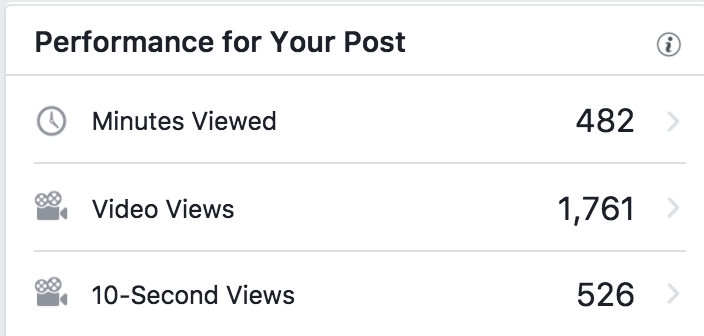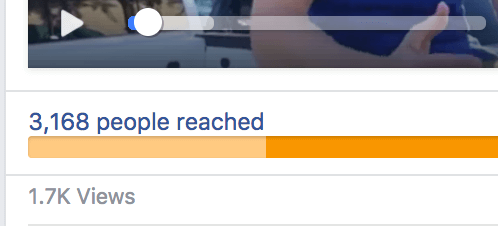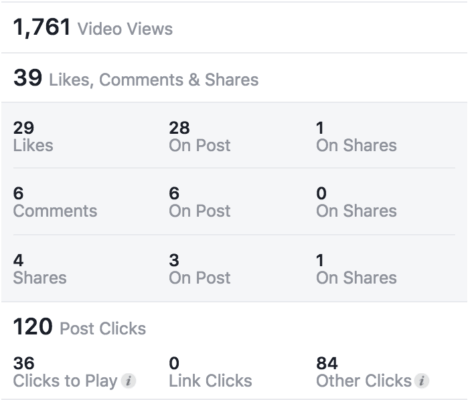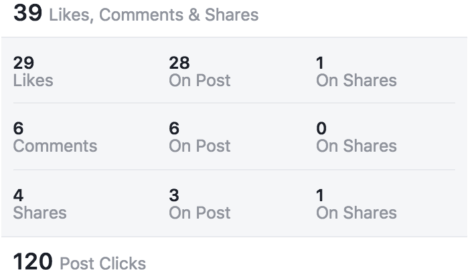From view-through rate to video length, contributor Sweta Patel discusses the metrics that will help you understand how your videos are performing on Facebook.

Let’s face it, video is the highest-converting medium in the social media space. When it comes to content, it is the king of kings, the best player on the field, the sultan of swat, the king of crash, the colossus of clout… OK, you get the picture.
Why does video convert more? Simply stated, it’s more human. The movement more closely represents life. If it’s a video with people in it, faces give off emotional cues we understand and identify with.
As smartphones have become easily accessible across the world, real human connection is waning in some ways. We need human interaction, so how do we fill the void? Social media, my friend.
This is why “video snacks” can work like a charm. You can use short, highly engaging 60- to 90-second videos to walk your customer through the next steps. I recently had the opportunity to connect with Logan Young, the VP of strategy at BlitzMetrics, to learn more about the power of video and the metrics that matter when it comes to video engagement.
Here are the metrics that matter the most for video performance:
1. View-through rate
This metric tells you how many people your video reaches and how many of those who were “reached” viewed the video. A video view is often defined by watching the video for at least three seconds (though Facebook’s newer average watch time replaces that metric).
To engage with your audience, you will want to connect emotionally right out of the gate. Otherwise, you’ll lose out on the view-through rates.
If 30 percent of your audience sees your video on average, 30,000 of 100,000 fans are viewing your video. That’s a decent number. But if fewer than 30 percent are watching your video, it means something may be wrong with the video itself.
If it’s not getting the engagement based on your reach, then you may want to A/B test the content of the video. Look at the 10-second view rate to see how strong a video it is based on the engagement. For example, if 30 percent of your audience watches at least 10 seconds of your video, then you have some content worth watching.
2. 10-second video views
The next metric you want to monitor is how many of your views turn into 10-second views. You want to be able to figure out how many quality views you are receiving for your video.
Is your audience actually sticking around, or are they bouncing after the first few seconds? This will help you determine if your audience really enjoys the content you’re producing or if you’re just wasting your time.

For example, I used to produce and promote video on a weekly basis. No one was engaging with my video, and I kept receiving negative feedback. I decided to reallocate my time and produce just one stellar video per month. As a result, I watched my engagement soar through the roof. It made a difference in how much my audience enjoyed what I was producing.
3. Video engagement
When it comes to your video, positive engagement is important. Typically, nearly 9 percent of your entire reach is able to view your video. So if you have 100 fans, only nine of them will see your video.
If those fans give you negative feedback on your video, it will compromise both the reach on your video and that of future content. Positive engagement usually consists of likes, comments and shares of the video.


4. Video average watch time
We know that if people watch more than three seconds of your video, then it results in a “video view.” If they watch 10 seconds or more of that same video, that’s a fairly high level of engagement. When the average view time gets up to this point, it indicates that people are consuming your content, and the result is positive sentiment.
The average watch time per video is around 10 seconds. If you can get it up to 15 seconds or above, then you are on a different level of Facebook video marketing. It’s best to try to A/B test your videos to understand which are producing the highest levels of engaged users.
5. Video length
Ideally, you want the length of your video to be around 20 to 90 seconds. Anything beyond may suffer when it comes to engagement.
There are placements where 20 to 90 seconds is not permitted. Some placements on Facebook only allow you to produce video lasting 15 seconds or less. You’ll want to engage your audience in the first few seconds anyway. If they aren’t engaged after 15 seconds of watching, you may have to produce a new video.
Bonus: Add captions to your videos, because they play on mute by default. Your audience will be unlikely to listen to your video unless you let them know what the video is about beforehand. When you create engaging captions for your videos, then the audience can read and decide whether to click for audio.
Video has the potential to be the most powerful and effective marketing tool you use, particularly if you produce highly engaging content. The feedback and data you get from Facebook videos should propel you in the right direction.
My advice is not to be afraid to make mistakes. Put your videos out there, and then listen to what the metrics are telling you. Before you know it, you’ll be playing in the big leagues with your video content.
Some opinions expressed in this article may be those of a guest author and not necessarily Marketing Land. Staff authors are listed here.
Marketing Land – Internet Marketing News, Strategies & Tips
(73)
Report Post






